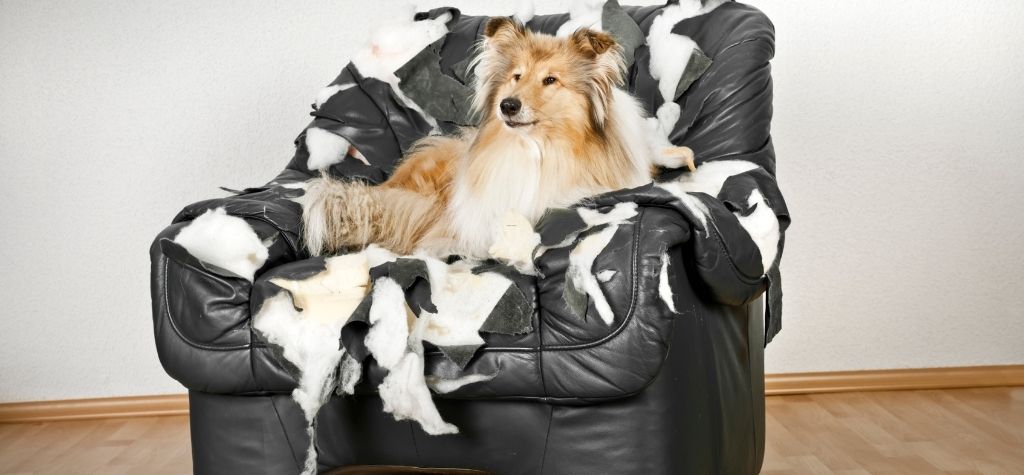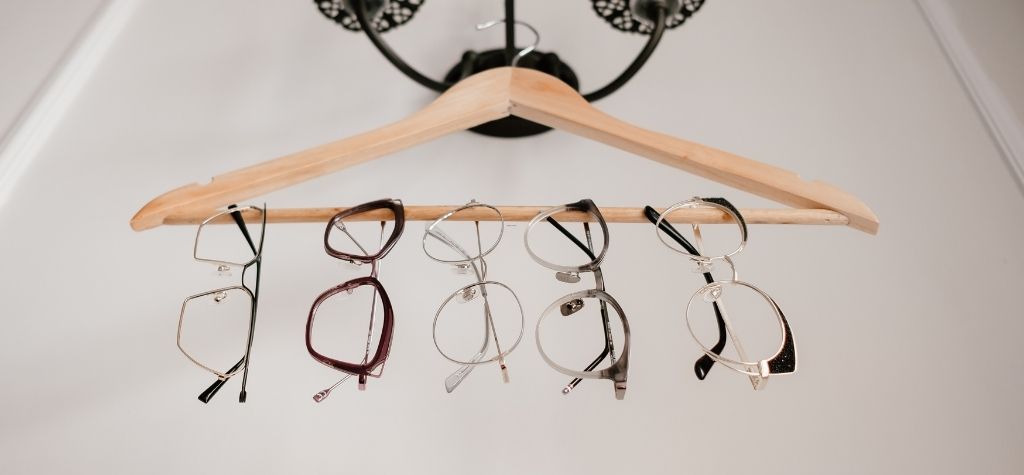If you’ve ever walked into a room to find your glasses chewed beyond recognition, you’re not alone. Dogs and cats are notorious for going after personal items—and your eyewear is no exception. The truth is, your glasses carry your scent, and to a curious or anxious pet, that makes them a fascinating chew toy.
Whether it’s your puppy gnawing on the arms or your cat batting them off the table, understanding why pets are attracted to your specs is the first step toward protecting them.
Understanding the Risk of Pet Damage

Chewed glasses aren’t just a financial headache—they can also be dangerous for your pet. Eyewear materials like metal and plastic may cause:
- Choking hazards
- Intestinal blockages
- Chemical exposure from coatings or lenses
And with replacement costs often exceeding $200–$500, it’s worth putting a plan in place to pet-proof your specs.
1. Keep Glasses Out of Reach
It may sound obvious, but many incidents happen because glasses are left:
- On nightstands
- On low tables
- Atop couch cushions
Solution: Create a “high-up” routine. Always place glasses on shelves, closed cabinets, or high bathroom counters your pet can’t access.
2. Use a Hard Case at All Times
Soft pouches won’t cut it. A hard-shell case offers protection from paws, teeth, and accidental sitting.
Look for cases made from:
- Aluminum
- Thick polycarbonate
- Snap-lock enclosures
Some models are even bite-resistant, designed specifically for households with pets or toddlers.
3. Apply Pet-Safe Deterrent Sprays
Sprays with bitter agents discourage pets from chewing anything they touch.
Recommended options:
- Grannick’s Bitter Apple (for dogs)
- NaturVet Bitter Yuck (safe for cats and dogs)
- DIY blend: white vinegar + lemon juice + water
Always test sprays on a small corner of your glasses to ensure they don’t affect the coating.
4. Train “Leave It” and “No Chew” Commands
Teaching your dog or cat to respect boundaries is critical. For dogs, use reward-based training to reinforce:
- “Leave it” when approaching glasses
- “Drop it” if they’ve already grabbed them
For cats, redirect with a toy and use firm “No” followed by a reward when they walk away.
5. Offer Chew Alternatives

Pets chew out of curiosity, boredom, or teething. Satisfy this urge with appropriate toys:
- Dogs: rubber chew bones, Kong toys, antler chews
- Cats: catnip-filled mice, rubber cords, textured balls
Rotate toys weekly to keep interest high and glasses off their radar.
6. Use Motion-Sensor Alarms or Covers
For mischievous pets who love sneaky attacks:
- Install desk drawer sensors that beep when approached
- Try pet-safe vibration mats near glasses storage zones
These create a mild aversive association with the forbidden area.
7. Keep Glasses Free of Tempting Scents
Glasses absorb:
- Skin oils
- Lotions
- Perfume residue
Pets love these smells. Wipe down glasses regularly with lens-safe cleaning solutions to reduce their sensory appeal.
8. Supervise Free-Roaming Pets Indoors
If your pet’s a repeat offender, keep a closer eye when they’re exploring.
Try:
- Baby gates for certain rooms
- Crate training during unsupervised hours
- “Out of sight, out of mind” tactics
This teaches pets where their boundaries lie without punishment.
9. Make Your Home Less Boredom-Prone
A bored pet is a destructive pet. Keep them stimulated with:
- Puzzle feeders
- Scent games (hide treats)
- Short play sessions throughout the day
Enrichment reduces chewing, biting, and furniture destruction across the board.
10. Consider Pet-Proofing Furniture Zones

Glasses often fall victim in:
- Bedrooms (nightstands)
- Living rooms (coffee tables)
- Bathrooms (countertops)
Use lid boxes, drawer organizers, or glasses hooks mounted on walls to remove temptation entirely.
When to See a Vet or Trainer
If your pet:
- Repeatedly seeks glasses
- Swallows lenses or frames
- Becomes obsessive over chewing
It may be time for a veterinary checkup or behavioral consultation. Some chewing patterns are driven by anxiety or underlying health issues.
What to Do If Your Pet Has Already Chewed Your Frames
- Inspect the glasses: Look for sharp edges, loose screws, or lens damage
- Visit your optician: Some damage may be repairable
- Watch your pet closely: Signs of ingestion include vomiting, loss of appetite, or abnormal stools
Contact your vet immediately if anything was swallowed.
Best Glasses Materials to Resist Pet Damage
While no material is pet-proof, some offer more resilience:
- TR-90: flexible, shatter-resistant plastic
- Titanium: strong and bend-resistant
- Memory metal frames: bounce back from bending
Investing in durable materials can save you hundreds in repairs or replacements.
Final Thoughts: Creating Harmony Between Pets and Eyewear

Protecting your glasses in a pet-loving household is all about habit and prevention. With the right storage habits, training, and pet-friendly alternatives, you can keep your specs safe—and your furry friends happy.
FAQs
Why does my dog chew on my glasses?
Your glasses smell like you! Dogs love chewing items with familiar scents, especially if they’re anxious or bored.
Are there glasses designed to resist pet chewing?
Yes, frames made from TR-90 plastic or memory metal are more durable and flexible under pressure.
What can I spray on my glasses to stop my cat from biting them?
Use pet-safe deterrents like bitter apple or a homemade lemon-vinegar mix. Always test on a non-visible spot first.
How can I stop my pet from stealing glasses off my desk?
Use higher storage, a hard case, and possibly a motion-sensor deterrent near your workspace.
Is chewing on glasses harmful for pets?
Yes. Pets can choke or suffer intestinal blockages from swallowed parts. Always seek veterinary help if ingestion is suspected.
What’s the best place to store glasses in a pet household?
In a hard-shell case on a high shelf, inside a drawer, or within a closable cabinet is safest.

